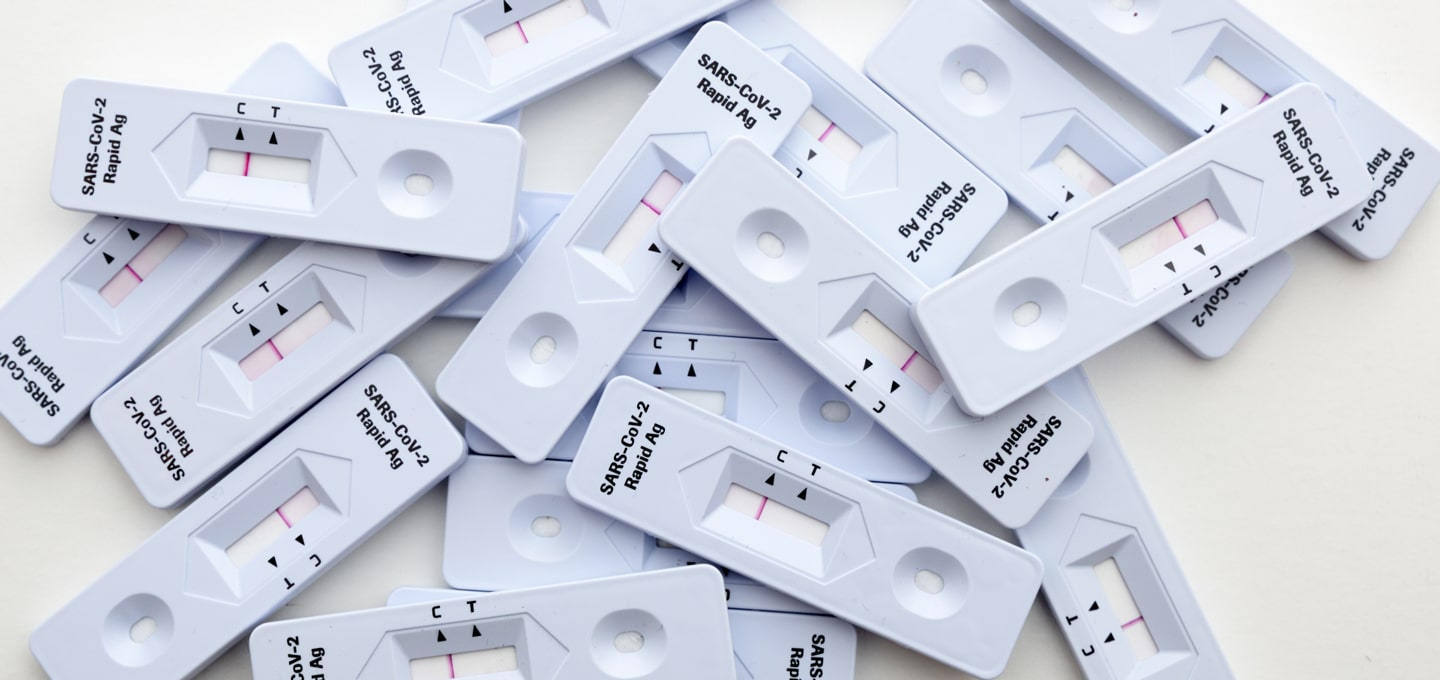In order to reduce the risk of Covid-19 infection at work, a significant measure has been added to the Coronavirus Occupational Health and Safety Regulation. Employers are required to offer their employees at least one coronavirus test per week if they cannot work at home exclusively. Employers already have to offer two tests per week to employees with a particularly high risk of infection. This applies, for example, to employees who perform services requiring close physical contact or who regularly meet customers. Employees who stay in shared accommodation arranged by their employer must also be offered two tests per week.
There are plans to increase this test offering requirement to at least two test offers per week for all employees in the near future. For now, the measure is limited until June 30, 2021. All previous measures to reduce the risk of infection in the workplace will remain in place.
Third parties can perform the tests, i.e., recognized service providers or test centers. This can provide the advantage that employees have proof of their test results which they can use outside of work as well. However, employees can also perform the tests themselves. The works council may have a co-determination right in accordance with Section 87 (1) No. 1 and No. 7 of the Works Constitution Act regarding the introduction of rapid coronavirus tests.
Coronavirus Test Mandatory or Voluntary?
It is generally up to the employee to accept the offer. The Coronavirus Occupational Health and Safety Regulation does not include an obligation for employees to get tested. There is only an obligation for the employer to offer the test. They must offer a coronavirus test to their employees. The employee is free to accept the offer.
However, in exceptional cases, the employer may have the right to order employees to take coronavirus tests. It may even be possible to order employees to receive a vaccination. This is because the employer has a duty of care to keep the risk of infection for other employees as low as possible. If employees refuse this “ordered” testing, employers can enforce consequences: e.g., leave of absence without continued pay or even dismissal. Arrangements should be made with the works council to prepare and implement such measures.
Duty of Care vs. Personal Rights
According to a ruling by the Labor Court Siegburg, the employer can order measures such as the wearing of a filtering facepiece at work (Ref.: 4 Ga 18/20). A coronavirus test, however, constitutes a greater infringement of personality rights than a requirement to wear a mask. Whether ordering employees to take tests is proportionate is therefore likely to depend on particular circumstances, e.g. incidence rates or local infection rates. The employee’s personality rights must then be weighed against the risk of infection with no testing.
If an employee shows symptoms including a cough, fever, cold symptoms, breathing difficulties or loss of taste and/or smell, for example, the employer’s duty of care will prevail. In this case, the employer can order the employee to take a coronavirus test within the scope of the employer’s right to issue instructions.
It is also generally possible to introduce compulsory testing within the framework of a works agreement.
However, in this case, it is also necessary to weigh up the personality rights of the employees. As long as the protection from infection can be guaranteed by other protective measures in the company (social distancing, etc.), there are no grounds to impose compulsory testing within the framework of a works agreement.
However, it has not yet been conclusively clarified by the courts in which exceptional cases it is possible to conclude such a works agreement. In the context of summary proceedings concerning a works agreement providing for compulsory testing in certain cases, the Labor Court Offenbach stated in its decision dated February 4, 2021 (Ref.: 4 Ga 1/21) that this was “not obviously disproportionate”. In this case, the works agreement specified a testing obligation where there is a reasonable suspicion that employees were infected with the Sars-CoV-2 virus in the workplace or if the risk that employees could be infected in the workplace is significantly increased. It would then also be possible to base the processing of personal data on the works agreement. At the moment, the Coronavirus Occupational Health and Safety Regulation does not provide a legal basis for such processing due to the lack of an obligation to test.
If there is an obligation for employees to take tests in exceptional cases, the question arises – which consequences does labor law provide for refusing to take a test? If the risk of infection is such to be given more weight than the personality rights, the employee who refuses a coronavirus test can expect to be prohibited from entering the company premises. If there is then also no possibility of performing the work from home, the affected employee will also lose the right to continued payment of wages during this period.
If, on the contrary, the employer does not offer a coronavirus test, employees can challenge this. They have a right to the be offered testing. Employers risk a fine of up to EUR 30,000 if they do not offer these tests.
Type of Coronavirus Test
Whether a rapid antigen test or a PCR test is offered, whether it is performed by the employees or by professional service providers and which type of coronavirus test is offered is at the employer’s discretion. The employee has no say.
The employer is required to retain evidence of the purchase of tests or agreements with third parties for the testing of employees for four weeks. Employees are not entitled to a certificate. This may, however, be regulated differently in regulations issued by individual federal states. Nevertheless, as long as the relevant federal or state law provisions do not require testing, there are also no grounds for the employer to document whether individual employees have accepted the offer of testing and what the test results were.
Coronavirus Test Does Not Count as Working Time
The employer must offer the coronavirus test, but the employee is not obliged to accept the offer. As the coronavirus test is therefore voluntary for the employee and is also not exclusively in the interest of the company, it does not count as working time.
The legislator has not established any regulations as to where the coronavirus test is to be carried out, in the company, in a test center or at home.
Positive Coronavirus Test – What Happens Next?
It is usually the responsible health authority which decides how to proceed after a positive coronavirus test. It can be assumed that a PCR test has to be carried out immediately for control purposes. In North Rhine-Westphalia, individuals who have received a positive test result from a coronavirus self-test are obligated to undergo a PCR test (control test) at a test center or at the general practitioner’s office immediately and to inform the test center of the positive self-test. An employee who has tested positive must remain in isolation until the PCR test is carried out, i.e. he or she must leave the company premises immediately or work from home and avoid any further contact with others. If the PCR test confirms coronavirus infection, the quarantine for the affected employee continues.
After an employee’s positive test result, the employer may already be obligated to enforce an immediate leave of absence in order to protect the other employees from infection, within the scope of the employer’s duty of care.
Coronavirus Test and Privacy
If the coronavirus test is positive, the employer must be informed. A positive test result constitutes medical data. Such data must be treated with absolute confidentiality and protected by appropriate measures. For the purposes of data protection, as few people in the company as possible should be informed of a positive test result. Therefore, a central coordinator should be set up in the company. Such data has no place in the personnel file. After four months at the latest, the data should be deleted.








